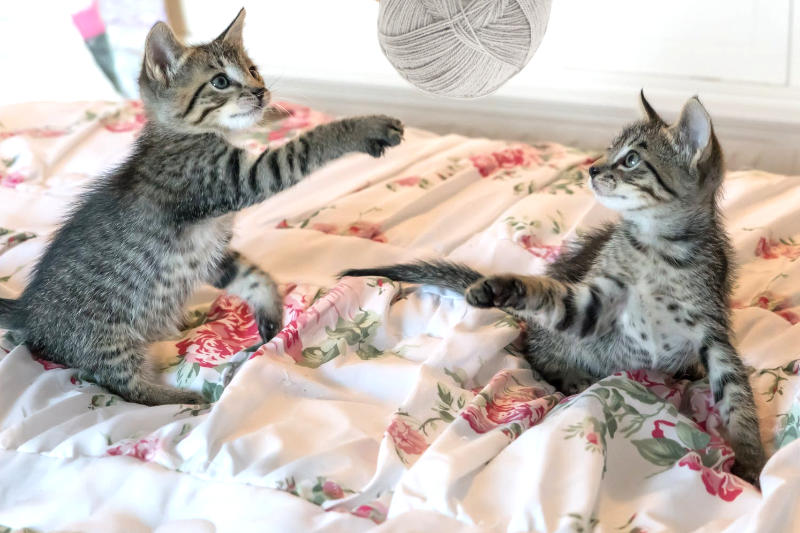The Other (Strange) Instinct
There’s another natural instinct that seems to be quite strange and controversial, yet it has been widely observed among mammals, birds, reptiles, fish, and even among invertebrates, like wasps*.

We're all familiar with how playful puppies and kittens can be. We’ve seen monkeys monkeying and rams ramming. I must confess, I've watched my share of goofy animal YouTube videos; one of the reasons why those videos captivate me so much is simply that the silly animals crack me up. There’s another reason why I find watching animals at play interesting.
If we were to look at the process of their play from a biological perspective, then we would notice that it is energy-demanding and seemingly pointless conduct that doesn’t amount to much. Yet, for some reason, nature has made play an integral part of the behavior of so many species throughout the animal kingdom.
What about avoiding wasteful actions? There must be something to it, right?
Absolutely! Otherwise, play would’ve been purged through evolution.
Play is one of those mysterious things that we don’t completely understand, even though there are quite a few theories on the subject**. It has become quite evident that, by playing in our early days, we prepare ourselves for what’s to come in the later stages of our lives. Play helps us develop the ability to adapt to and survive in various conditions, as well as preparing us for future social interactions, and so on. We can probably list a dozen of play’s benefits, but counting the benefits is not as important as understanding how our brain stimulates and rewards our playfulness, and why, at some point, our playfulness starts to decline.
One theory that I am keen of is that our brain and our whole nervous system just love to move; rather, they love to explore movement.
If this wasn’t true, then fetuses wouldn’t try to kick inside the womb; infants wouldn’t wave their hands in front of them, grabbing at things. Later, they will learn to roll over, while keeping their heads up and defying gravity as they make their first attempts at crawling. Little humans have no business to attend to and no errands to run, but they make it a priority to start moving.
Soon enough, we see our kids racing each other, climbing trees, rolling downhill in the grass, jumping on trampolines, and doing everything else we used to do ourselves. Notice that most of these are things we don’t do as grown-ups. “That’s kids’ play,” we say. “We're adults now. We’ve outgrown play.” In retrospect, what do you think all that seemingly aimless “rock’n’rolling” was all about?
We had fun simply by moving most of the time. It felt good to ride a bicycle through the neighborhood with no apparent destination. Let’s climb the wall. Let’s dig a hole. These ideas were appealing enough by themselves. We didn’t need a goal, we just wanted to feel the sensation of a new way to move.
This intrinsic fascination with exploring and mastering movement didn’t stop in our childhood. In our teen years, we started enjoying sports and dancing as we acquired an appreciation for coordinated movement. Our need for new sensations elevated beyond simply moving to moving in predictable ways. Many join performance troupes or athletic teams. Some just stick to dancing in front of a mirror at home. Yet, we all go through that stage, doing many things that we rarely do now. How so? Has our brain’s response to movement dulled? Is that why we no longer enjoy it?
I believe that the mechanism remains present in us for the rest of our lives, but that what changes is the prioritization of significance among our natural instincts.
When it comes to trying new things, it seems that kids are a bit more brave than adults. The older a person is, the more convincing it will take to make him or her do something strange, unpredictable, or dangerous; a kid would shove a bug in his mouth or jump in a puddle not knowing how deep it is before you even dare him to do it. You could argue over whether it's bravery or stupidity, but that doesn’t change the following point. (Read next: Unpleasant and Dangerous Experiences)
* Fish just want to have fun, according to a new study that finds even fish 'play' - Science Daily, October 20, 2014
** So You Think You Know Why Animals Play...Scientific American, May 17, 2011